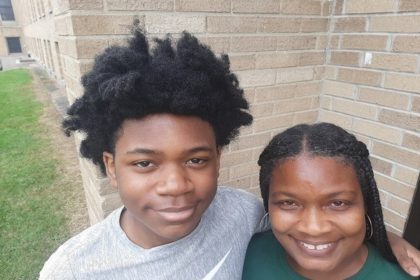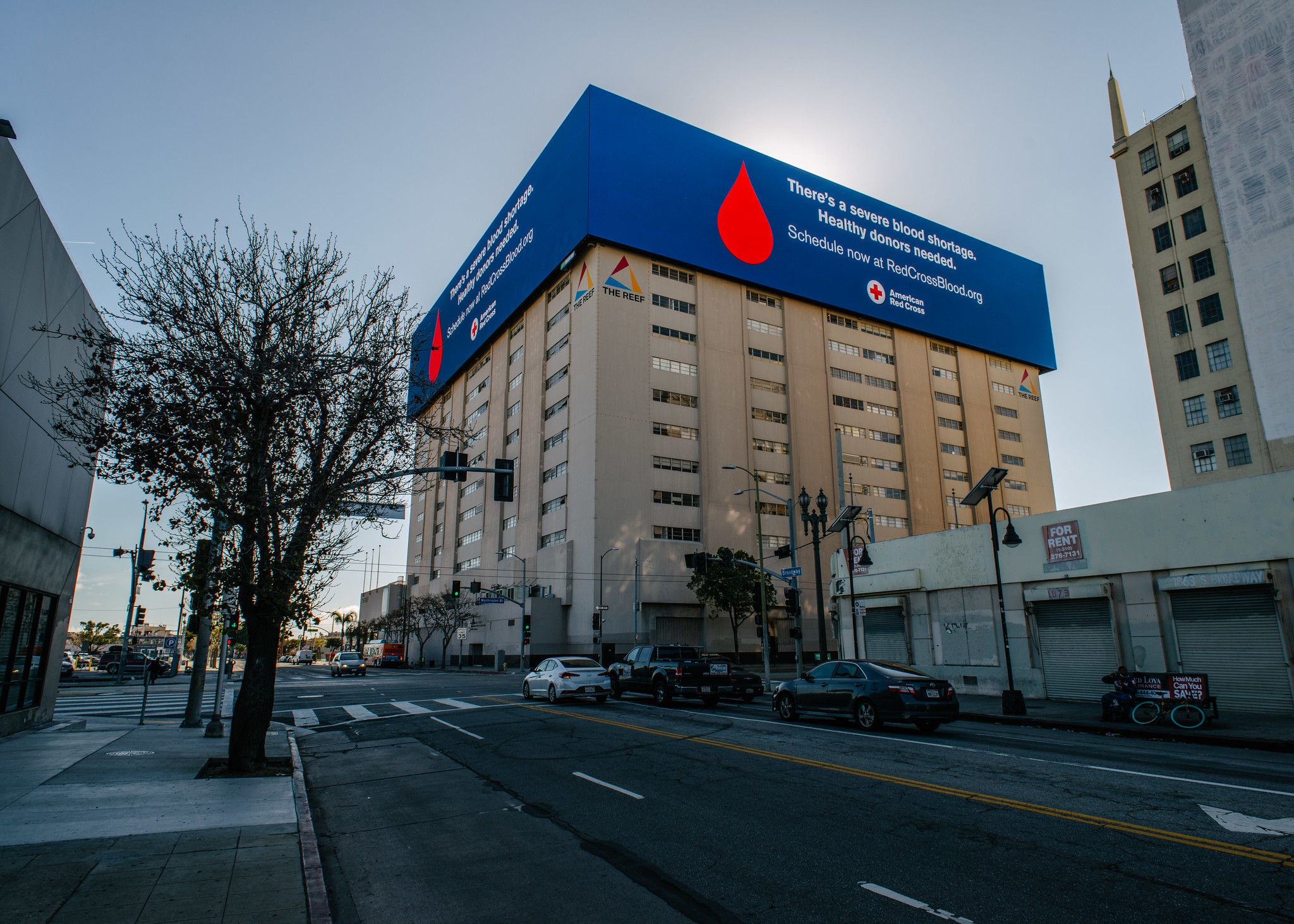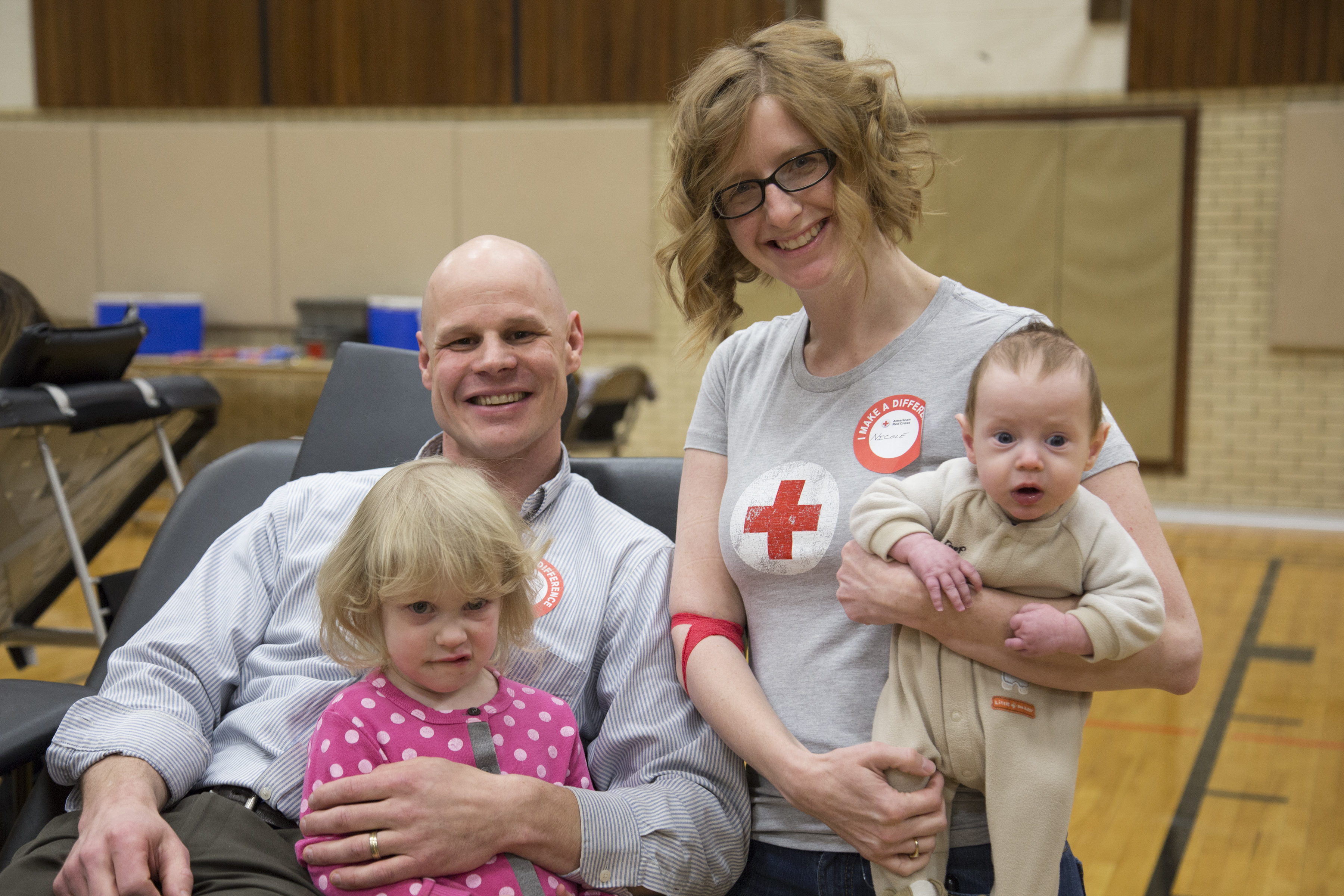D’Lee Mayberry ’s father exposed her early in life to donating blood through the Red Cross. Her father, a police officer, was a regular donor, and she fondly remembers extra-filling family dinners the night before his appointments so he would be well-fortified for the occasion.
Mayberry herself began contributing at age 21 upon seeing a Red Cross sign on a storefront. She walked in for her first of numerous donations through the years. Her motivation was simple: “I just thought it was a way of giving back,” much like a neighborhood cleanup or a volunteer shift at a charity food giveaway.
Mayberry’s perspective changed in April. Early one afternoon, she was driving her 15-year-old daughter Elle home to Carlsbad from a hospital, where the teen underwent an apparently routine colonoscopy as an out-patient. Then Elle said, “Oh, Mom, I’m bleeding.” That was an understatement. Seeing a large amount of blood in the vehicle, Mayberry rushed her daughter back to the hospital.
Initial tests found no cause for the hemorrhaging, which continued unabated. With the girl’s hemoglobin, a protein in the blood that supplies oxygen to the body, plummeting to a dangerously low level, doctors ultimately decided a transfusion was necessary.
It was not until nearly dawn the next day, with Elle essentially in shock, when the first bag of blood was administered. The hemoglobin count remained depressed. A second transfusion was required. Just one problem. Mayberry was informed that no donated blood was on hand.
“I don’t know if you know this,” she recalled hearing, “but there is a blood shortage.”
She nervously awaited a few hours until the hospital secured a supply. At 9 o’clock, the teen received another transfusion. Not until mid-afternoon, some 24 hours after the hemorrhaging begin, did Elle, who has recovered, stop losing blood. (Doctors suspect that a nicked blood vessel during the colonoscopy went undetected.)
Mayberry was so moved by the impact of the contributed blood that she recounted the ordeal in a talk to her Toastmaster club. “If not for those anonymous donors, my daughter never would have seen her 16th birthday,” she told the rapt audience.
Mayberry’s appeal for donors comes in a period of heightened need. Chris Hrouda, president of Red Cross Biomedical Services, sounded the alarm recently, saying, “The Red Cross is currently experiencing a severe blood shortage.”
The red cell demand in hospitals with trauma centers has because of increased emergency room visits. Another source for the bump is patients catching up on procedures postponed during the pandemic.
In the speech, Mayberry recognized the simplicity of donating. Scheduling is as easy as a few clicks on a computer or mobile device, which provides a thorough list of times, dates and sites from which to choose. Red Cross then sends out reminders before and on the scheduled day.
Once registration at the location is complete, donors lie relaxed on a table as the blood is drawn. “And 20 minutes later, you are done,” she said. (Times can vary slightly.)
The process ends with snacks at a table, where Mayberry enjoys exchanging pleasantries with fellow donors.
“When you leave,” she advised the audience, “you leave feeling really good.”
At the same time, she did not consider her blood’s ultimate destination and importance.
“When they’d say they had a shortage, I never understood what that meant,” she said in an interview. “I never thought about it saving a life.” The newfound awareness will accompany her the next time she offers up a pint.





